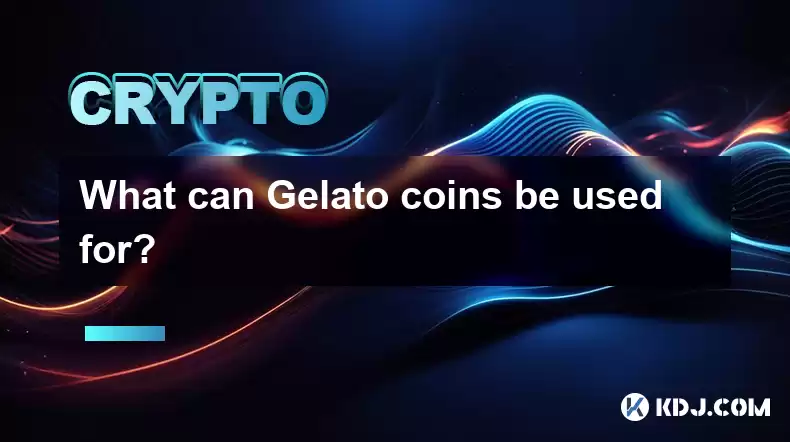-
 Bitcoin
Bitcoin $121700
1.50% -
 Ethereum
Ethereum $4724
2.29% -
 XRP
XRP $3.230
-1.48% -
 Tether USDt
Tether USDt $1.000
0.05% -
 BNB
BNB $856.9
0.95% -
 Solana
Solana $203.2
2.41% -
 USDC
USDC $0.9998
0.02% -
 Dogecoin
Dogecoin $0.2420
-2.94% -
 Cardano
Cardano $0.9878
13.62% -
 TRON
TRON $0.3652
2.74% -
 Chainlink
Chainlink $23.35
-0.14% -
 Hyperliquid
Hyperliquid $46.38
3.82% -
 Stellar
Stellar $0.4462
-1.59% -
 Sui
Sui $3.963
0.50% -
 Bitcoin Cash
Bitcoin Cash $605.7
-0.07% -
 Hedera
Hedera $0.2686
1.64% -
 Ethena USDe
Ethena USDe $1.001
0.00% -
 Avalanche
Avalanche $25.03
0.69% -
 Litecoin
Litecoin $128.1
-2.47% -
 Toncoin
Toncoin $3.518
0.37% -
 UNUS SED LEO
UNUS SED LEO $9.264
0.22% -
 Shiba Inu
Shiba Inu $0.00001362
-2.28% -
 Uniswap
Uniswap $11.50
-2.45% -
 Polkadot
Polkadot $4.195
-0.48% -
 OKB
OKB $101.9
-9.51% -
 Bitget Token
Bitget Token $4.783
1.11% -
 Dai
Dai $0.9999
0.01% -
 Cronos
Cronos $0.1639
-2.59% -
 Pepe
Pepe $0.00001187
-3.61% -
 Aave
Aave $326.2
1.42%
What can Gelato coins be used for?
Gelato empowers developers with "Gelato Ops," automated blockchain scripts that streamline tasks in DeFi automation, smart contract monitoring, liquidity management, portfolio rebalancing, and gameplay automation.
Dec 25, 2024 at 09:21 pm

Key Points:
- What is Gelato?
- Use Cases of Gelato
- How to Use Gelato
- FAQs
What is Gelato?
Gelato is a decentralized network that allows users to automate tasks on the blockchain. It provides a platform for developers to create and deploy "Gelato Ops," which are automated scripts that can execute a wide range of tasks, such as:
- Sending transactions
- Monitoring smart contracts
- Managing liquidity
- Rebalancing portfolios
Gelato is powered by a native token called GEL, which is used to pay for the execution of Gelato Ops. The GEL token also serves as a governance token, allowing holders to participate in the development and governance of the Gelato network.
Use Cases of Gelato
Gelato has a wide range of use cases, including:
- DeFi Automation: Gelato can be used to automate a variety of DeFi tasks, such as yield farming, market making, and arbitrage.
- Smart Contract Monitoring: Gelato can be used to monitor smart contracts for specific events, such as when a certain threshold is reached or a transaction is executed.
- Liquidity Management: Gelato can be used to manage liquidity on decentralized exchanges by automatically adjusting the supply and demand of tokens.
- Portfolio Rebalancing: Gelato can be used to automatically rebalance portfolios by buying and selling assets based on predetermined parameters.
- Gameplay Automation: Gelato can be used to automate gameplay in blockchain games by performing actions such as harvesting resources, battling opponents, and completing quests.
How to Use Gelato
To use Gelato, you will need to:
- Create a Gelato Account: You can create a Gelato account by visiting the Gelato website.
- Fund Your Account: You will need to fund your Gelato account with GEL tokens in order to execute Gelato Ops.
- Create a Gelato Op: You can create a Gelato Op by visiting the Gelato dashboard.
- Set Up Your Gelato Op: You will need to set up your Gelato Op by specifying the action you want to automate, the trigger conditions, and the gas price you are willing to pay.
- Execute Your Gelato Op: Once you have set up your Gelato Op, you can execute it by clicking the "Execute" button.
FAQs
- What is the difference between Gelato and other automation platforms? Gelato is a decentralized platform, which means that it is not controlled by any central entity. This makes it more secure and reliable than other automation platforms.
- How much does it cost to use Gelato? The cost of using Gelato depends on the complexity of your Gelato Op and the gas price you are willing to pay.
- Is Gelato secure? Gelato is a secure platform that has been audited by multiple security firms.
Disclaimer:info@kdj.com
The information provided is not trading advice. kdj.com does not assume any responsibility for any investments made based on the information provided in this article. Cryptocurrencies are highly volatile and it is highly recommended that you invest with caution after thorough research!
If you believe that the content used on this website infringes your copyright, please contact us immediately (info@kdj.com) and we will delete it promptly.
- Kazakhstan's Crypto Leap: Bitcoin ETF and Central Asia's Digital Finance Future
- 2025-08-13 12:45:19
- BlockDAG Presale Blazes Past $371M: Fundraising Frenzy Fuels Crypto Sensation
- 2025-08-13 13:05:21
- Meme Coins: Chasing the 2025 Surge – Which Will Moonshot?
- 2025-08-13 10:25:23
- Bitcoin's Wild Ride: Rally, Pullback, and What's Next
- 2025-08-13 10:25:23
- Bitcoin, Bitmax, and Institutional Demand: A New Era of Crypto Investment
- 2025-08-13 10:45:12
- Solana, ROAM, and Airdrops: What's the Buzz in 2025?
- 2025-08-13 11:35:13
Related knowledge

How to purchase Aragon (ANT)?
Aug 09,2025 at 11:56pm
Understanding Aragon (ANT) and Its PurposeAragon (ANT) is a decentralized governance token that powers the Aragon Network, a platform built on the Eth...

Where to trade Band Protocol (BAND)?
Aug 10,2025 at 11:36pm
Understanding the Role of Private Keys in Cryptocurrency WalletsIn the world of cryptocurrency, a private key is one of the most critical components o...

What is the most secure way to buy Ocean Protocol (OCEAN)?
Aug 10,2025 at 01:01pm
Understanding Ocean Protocol (OCEAN) and Its EcosystemOcean Protocol (OCEAN) is a decentralized data exchange platform built on blockchain technology,...

How to invest in Kyber Network Crystal v2 (KNC)?
Aug 12,2025 at 05:21pm
Understanding Kyber Network Crystal v2 (KNC)Kyber Network is a decentralized liquidity hub built on the Ethereum blockchain that enables instant token...

Where can I buy UMA (UMA)?
Aug 07,2025 at 06:42pm
Understanding UMA and Its Role in Decentralized FinanceUMA (Universal Market Access) is an Ethereum-based decentralized finance (DeFi) protocol design...

How to sell my Ren (REN) tokens?
Aug 13,2025 at 11:35am
Understanding REN Tokens and Their Role in Decentralized FinanceREN is an ERC-20 token that powers the Ren protocol, a decentralized interoperability ...

How to purchase Aragon (ANT)?
Aug 09,2025 at 11:56pm
Understanding Aragon (ANT) and Its PurposeAragon (ANT) is a decentralized governance token that powers the Aragon Network, a platform built on the Eth...

Where to trade Band Protocol (BAND)?
Aug 10,2025 at 11:36pm
Understanding the Role of Private Keys in Cryptocurrency WalletsIn the world of cryptocurrency, a private key is one of the most critical components o...

What is the most secure way to buy Ocean Protocol (OCEAN)?
Aug 10,2025 at 01:01pm
Understanding Ocean Protocol (OCEAN) and Its EcosystemOcean Protocol (OCEAN) is a decentralized data exchange platform built on blockchain technology,...

How to invest in Kyber Network Crystal v2 (KNC)?
Aug 12,2025 at 05:21pm
Understanding Kyber Network Crystal v2 (KNC)Kyber Network is a decentralized liquidity hub built on the Ethereum blockchain that enables instant token...

Where can I buy UMA (UMA)?
Aug 07,2025 at 06:42pm
Understanding UMA and Its Role in Decentralized FinanceUMA (Universal Market Access) is an Ethereum-based decentralized finance (DeFi) protocol design...

How to sell my Ren (REN) tokens?
Aug 13,2025 at 11:35am
Understanding REN Tokens and Their Role in Decentralized FinanceREN is an ERC-20 token that powers the Ren protocol, a decentralized interoperability ...
See all articles

























































































